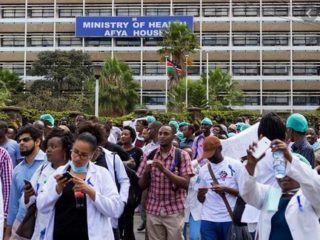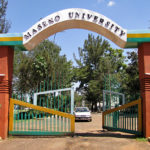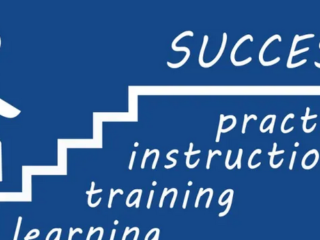- Regional Monitoring & Evaluation Capacity Building Coord.
To effectively lead, coordinate and ensure quality Design, Monitoring & Evaluation (D, M & E) operations at WVK Regional Office. To effectively execute this mandate, the staff will require to promote learning, ensure adherence to guidelines and standards for the LEAP project cycle, WVK internal/contextualized business processes and other donor specifications as appropriate.
Major Activities
End Results Expected
-
- Planning in the Programme Cycle, 15%
- Facilitate the development of a programme design that builds partner capacity in a way that ensures sustainability. Make recommendations for the log frame development, based closely on relevant information. Support the programme managers in the development of the logic of the intervention, as required
- Facilitate a participatory review of logical flow and consistency within the hierarchy of objectives and assumptions. Contextualise indicators drawing on community conversations as appropriate
- All AP under the Region have effective design documents completed in time
- Identify key areas for monitoring according to the log frame. Identify and contextualize methodologies for appropriately measuring indicators using participatory methods where possible
- Functional monitoring framework, M&E Plans and tools in place
- Work proactively with key staff and stakeholder to develop detailed monitoring plan for the technical programme, ensuring clarity of roles and responsibilities
- Monitoring plans put in place and in use; evidence by schedules and reports
- Share monitoring and evaluation plans with key stakeholders and incorporate their feedback as appropriate. Seek approval for monitoring and evaluation plan from program design team lead as necessary
- Approved M&E Plans in use (showing contribution of key stakeholders and approved)
- Support planning for effective Surveys (Evaluations and Baselines) for APs transitioning or entering new phases within the Region
- 100% execution of all the planned surveys and assessment
- Support Area programs to plan and coordinate M&E activities
- Well adhered to AP Specific M&E Plans
- Lead the process of annual planning and budgeting by all the APs and Grants depending on their implementation calendar and phases
- 100% timely completion and submission of the Annual Plans for Grants meeting donor requirements
- Technical Support all DME and CB in the Region, 20%
- Provide support to AP teams and partners in data processing, consolidation and analysis across the local programming areas.
- Technically sound and csted AP process and Monitoring Plans and processes
- Provide oversight on scheduling and budgeting for monitoring processes according to the needs of the technical programmes (TPs).
- Support Programmes/Projects to ensure real-time monitoring and appropriate data storage for timely utilization by staff and partners to show progress and issues at Area Program, regional and national level.
- Local programming data/information readily available for reference in decision making and programme evaluation/surveys,
- Work closely with the area programme managers and teams to co-design technical programme M&E plans that are relevant to the local programming context.
- TP M&E Plans in place and in use
- Provide constructive/technical support to area programme managers on monitoring data generation to ensure that information produced is relevant and useful to the difference stakeholders.
- UP to date and retrievable monitoring data in the M&E system
- Share lessons learned from technical programmes with area programmes to enhance local planning and implementation. Suggest modifications that might be necessary at the local level based on evidence and lessons learned
- Consolidated lessons from review of monitoring data documented and used in improving TP programming
- Support the establishment and ensure use of quality monitoring systems and processes within the Region
- Established and usable monitoring Systems in place
- Visit field offices to monitor GIS operationalization in programs/projects and collect data
- GIS Field Visit report with recommendations and action
- Quality Assurance and Management through the Programming cycle, 20%
- Ensure the sustained implementation of all DME related processes including LEAP/ HORIZON ,STEP, GIS/WVDPA /HAP/SPHERE at the Area Program and Regional operational levels;
- Up-to-date monitoring databases (within the portfolio of projects) and in use in reporting and decision making
- Ensure that D,M&E related activities – assessment, design, monitoring, baselines, evaluations, transition, and documentation – are successfully implemented as per standard and disseminated to staff and used to inform future ME processes and decision making.
- DM&E Key components and processes meets the quality standards of practices
- In relation to the AP Designs: Verify that collaboration with partners is appropriate to their capacity. Ascertain that the specific needs of the most vulnerable children are addressed. Verify the inclusion of collaboratively developed sustainability and transition plans with associated agreements with partners
- Design documents meets the LEAP and relevant donor specific standards
- Ensure harmonised timely and comprehensive routine and non- routine monitoring system for quality data as per the Technical program needs at the county and regional level
- Joint/Integrated Quality monitoring completed and reported
- Review Area Program monitoring data to ensure that it is accurate, relevant and contributes to national office strategy and CWB.
- Up to date monitoring system (Horizon)
- Ensure real time mapping of projects using GIS in the area programs
- Up to date mapping of all project assets and profile
- Develop periodic data verification and data quality improvement plans for the region
- Functional data verification plan in place that is aligned to the National Data Quality Management guidelines
- Ensure that GIS business processes, standards and policies developed in coordination with other WVK entities are effectively and consistently used by operations staff
- GIS mapping adheres to the recommended processes and meets the standards and policies of practice
- Ensure thorough data cleaning and processing prior to analysis and that descriptive and appropriate statistical analysis/tests are applied according to the analysis plan/indicator detail sheets, with support from NO DME specialists and consultancy teams.
- All progress and Impact measurements are completed using aprorpiate Statistical Analysis and plan
- Ensure that appropriate methods are used for sorting and analysing qualitative data, according to the analysis plan/indicator detail sheets, with support from the NO me specialists or consultancy teams.
- Analysis summaries and appropriate factsheets are generated and shared with relevant stakeholders
- Work with the Area Program manager to ensure active critical reflection and interpretation of the findings in context at the community and regional level.
- Survey report meeting completed in time and disseminated to relevant stakeholders
- Final report filed in appropriate repositories
- Planning in the Programme Cycle, 15%
- Reporting of Progress and Performance, 10%
- Facilitate/socialize Area Program teams’ understanding of requirements for a management report, according to LEAP/WV procedures. Guide the teams in the use of data management system efficiently to access relevant and necessary data for report generation
- 100% completion and timely submission of the AP Management Report as per guidelines and schedules
- Review the analysed and interpreted data from across the area programmes in the region to collate learning and use the monitoring data developed during the reporting period as the basis for the programme report. Facilitate review sessions of participatory monitoring data to identify key messaging for the report
- Documented learning and monitoring data and reports used in reporting
- Coordinate collection of feedback from technical report reviewers to Area Program managers. Check the report for accuracy and quality to ensure they meet report LEAP requirements. Provide Technical support to program managers on uploading reports on Horizon
- All the AP and Grants Reports in the Region are reviewed and feedback provided for
- Support documentation of special donor reports or documentations of best practices or success stories
- We documented reports meeting donor and standard reporting requirements
- Lead the process of semi and annual reporting by all the APS and Grants depending on their implementation calendar and phases
- 100% timely completion and submission of the Semi/Annual Reports meeting donor requirements
- Capacity Building, 10%
- Support implementing staff to have required capacity (skills, knowledge & attitude) in DM&E processes and utilize it for enhanced programming.
- Staff engaged in training, mentoring, coaching and practical field experience.
- Promote an enhanced culture of learning, innovation and practice of LEAP/DME discipline and Empowered World View.
- We adhered to learning schedule and Reports documented
- Lead in the implementation of new program effectiveness initiatives to staff within the region e.g. Horizon Wave 2, WVDPA, EWV
- 100% roll out of the new initiatives as per standards and schedules
- Support in building capacity of implementing staff to integrate Programme and accountability framework within Area Programs
- All targeted staff trained of PAF and follow up reports on application done
- Support Local Institutions capacity building initiatives
- Institutional assessment reports in place
- Up to-date guidelines and procedures
- Advisory support provided to Regional ME teams on capacity building of local institutions.
- Support Programs/Projects sustainability and transition (S&T) planning and implementation
- Programs/Projects S&T plans in place and being implemented.
- Research, Surveys (Evaluation/baselines) and documentation, 15%
- Participate actively in scoping discussions with key stakeholders, in an analytical and well-informed way to inform program evaluation TOR. Build capacity of field level teams in understanding the relevant information for the basic information sheet.
- Approved TORs and schedules for surveys meeting the DME Standards
- Support the Area Programs teams in logistics planning for the training of data collectors and the data collection in the field in accordance with ToR. Critically analyse and approve plans as necessary to respond to field reality, in collaboration with the evaluation lead or and Area Program manager
- Sound Methodology and tools applied in the scheduled surveys/measurements and other studies
- Coordinate the review and provision of feedback on standard tools in consultation with DME Coordinator Research and documentation and field staff/partners.
- Participate in the field testing of tools to ensure evaluation lead has adopted a technical sound methodology to ensure accuracy in data collection. Provide critical, review and approve the final tools to be used for the evaluation after feedback has been received
- Co-facilitate training for data collectors and data entry clerks, in a way that supports effective learning. In collaboration with the Area Program manager support the smooth-running of the data collection process. Supervise the consultant during data collection and data entry clerks, with due care and attention to ensure maximum data quality
- Data collection meets acceptable standard/agreed on and documented methodology and quality assurance procedures
- Support AP storage of collected data securely as per policies relating to data protection for all programs at the regional level. Deal with and/or escalate technical issues and problems proactively as they arise, adapting plans as appropriate. Participate actively in reflection sessions and provide constructive critical feedback as necessary
- Data storage and retrieval meeting the policy standards
- Support data analysis, interpretation and validation with relevant stakeholders according to the indicator analysis plan
- Robust/rigorous analysis according to the indicator detail sheets – Analysis Summary
- Participate in feedback processes, with community, staff and partners in a context-sensitive way. Co-facilitate reflection and learning with staff and partners to refine interpretation of the findings. Review and provide considered feedback on the baseline or evaluation report, as requested
- Well documented reflection and learning report on the surveys/study findings
- Provide input for products appropriate for different audiences to share the findings and recommendations, as requested. Participate in reflection with DME team to review and refine learnings about the evaluation process
- Documented evidence of feedback/input provided on the various DME products
- Contribute to identification, protocol setting and monitoring of action researches integrated to Technical Programmes or their models
- Up to date implementation of action researches given in regular tracking reports
- Strategic Coordination and collaboration, 5%
- Establish and maintain links with external organizations for collaboration, networking, resource sharing, materials development, and learning activities in DM&E.
- Evidence of functional partnerships with learning institutions on potential research areas for evidence based programming sustained with running agreements/MoUs
- Ensure WVK participation in learning/research forums within the county and National platforms/forums for wider experience gathering and sharing of practice.
- Active Learnings for replication from participation in external learning/research forums
- Any Other duty 5%
Requirement
- Bachelor’s degree in a relevant field from a recognized University, preferably in Social Sciences (Project Planning and Management, Statistics, Development Studies, Monitoring and Evaluation, Impact Assessments and Accountability) or related studies from a recognized university. Post graduate degree will be an added advantage.
- Minimum of 5 years’ active experience in project cycle management
- Extensive conceptual understanding of and demonstrated practical command for implementing program design/Logical Approach, management and evaluation principles;
- Experience in integrated Programme/Projects design and associated tools development
- Demonstrated ability to train and build capacity of other staff and grassroots institutions for effective Programme delivery
- Must have knowledge and practical experience in Research, organizational learning and documentation and have good writing and editing skills
- In-depth knowledge and understanding of WV working systems, policies and standards will be an added advantage
- Ability to design and coordinate surveys (feasibility studies/assessments, baselines, evaluations; using both online and offline platforms
- Good level of proficiency in data analysis techniques/software and data management
- Ability to design M&E tools, surveys, surveillance systems, and evaluations
- Strong interpersonal skills and managerial capacity [Preference]
- Ability to build capacity of staff on relevant technical fields
- Proficiency in written and spoken English.
- Effective in written and verbal communication [English].
- Good interpersonal, organizational and management skills
- Ability to solve complex problems and to exercise independent judgment
- Experience in production of high quality briefs and reports
- Experience in publications of articles/journals
- Regional IT Manager, VisionFund International
PURPOSE OF POSITION:
Operationally, microfinance is similar to banking and requires a high level of automation and enhanced operational environments to manage and deliver the various products across the Micro Finance Institution (MFI) organisation. Therefore, having the right technology platforms, processes and people to deliver these services is critical to achieving VF’s strategic goals. As a result of the highly specialised nature of the business, VisionFund (VF) now has its own team of people who will be responsible for the efficient and effective use of technology and operational standards, enhancing these to drive impact towards VF’s 2030 strategy. This automated concept is focused on banking and accounting systems, and associated derivative peripherals, with People and Processes being equal legs in this three-pronged approach to pursuing change in VF. Regional IT Director (“RIT”) are therefore people with a strong understanding of the business model, its needs and solutions to be pursued to enhance the organisations maturity.
RITs will have management oversight of MFI functions with MFI IT Managers (“ITMs”) having a matrix reporting line to the RITs. A typical region will spend over $1m on Change programmes, have around 25-30 IT staff in total, and be spending about another $1m annually on major IT projects.
RITs will ensure MFIs are in alignment with VF global strategies, working closely with global center and MFI staff. RITs will champion regional needs and priorities in respect to global strategic approach and ensure implementation of such in the individual MFIs in their jurisdiction.
MAJOR RESPONSIBILITIES:
Operationally, microfinance is similar to banking and requires a high level of automation and enhanced operational environments to manage and deliver the various products across the MFI organisation. Therefore, having the right technology platforms, processes and people to deliver these services is critical to achieving VF’s strategic goals. As a result of the highly specialised nature of the business, VF now has its own team of people who will be responsible for the efficient and effective use of technology and operational standards, enhancing these to drive impact towards VF’s 2030 strategy. This automated concept is focused on banking and accounting systems, and associated derivative peripherals, with People and Processes being equal legs in this three-pronged approach to pursuing change in VF. Regional IT Director (“RIT”) are therefore people with a strong understanding of the business model, its needs and solutions to be pursued to enhance the organisations maturity.
RITs will have management oversight of MFI functions with MFI IT Managers (“ITMs”) having a matrix reporting line to the RITs. A typical region will spend over $1m on Change programmes, have around 25-30 IT staff in total, and be spending about another $1m annually on major IT projects.
RITs will ensure MFIs are in alignment with VF global strategies, working closely with global center and MFI staff. RITs will champion regional needs and priorities in respect to global strategic approach and ensure implementation of such in the individual MFIs in their jurisdiction.
The role is to provide regional leadership in IT to ensure the ongoing delivery of best-in-class technology, enable operational capabilities, and support minimum IT and operational standards to realise the VisionFund Strategy. The role is responsible for reducing Operational Cost Ratio (“OCR”) for the region, ensuring regional alignment with the global Technology and Operational Maturity Strategy, and leading and managing regional technology change. The RIT must ensure digital solutions support regulatory requirements, operational process refinement that realises efficiency gains, reduce costs, support drivers of growth, and reduce risk of manual processes. They must ensure digital solutions support
expected volume growth, expansion and reduction in geographic reach, support scale of operational best practice and operational excellence, and yield quantifiable business benefits in the field for clients and MFIs – in line with the VisionFund Strategy. The RIT must ensure regional IT equips end-users with appropriate technology that enables them to deliver performance – both social impact and fiscal and considers the future role of technology in Microfinance.
- In practice this means:
- Daily direct and matrix management of resources in the region, including 11 ITMs and their teams (approx. 35/40 people across the organisation).
- Regular engagement and leadership with the Regional Operations Director to ensure operations standards are upheld and capabilities enabled with the delivery of appropriate and best-in-class technology to drive fiscal and impact performance.
- Ensuring that MFIs have the skills and competencies both within IT and business functions to use their technology to maximum effect, identifying deficiencies that need to be addressed, and support them in skills training and capacity building so that they become more capable in managing technology;
- Ensure that MFIs have and effectively enforce the required IT policies and procedures in place. Monitor and evaluate how IT policies and procedures are implemented. This includes but it is not limited to data security, backup, physical security, timely replacement of hardware, disaster recovery plans and any other policy in area of system administration.
- Ensure that appropriate approval levels, rights, authorities and controls are built in to any system platform application or any software in use to ensure there are no gaps in internal control and support regulatory, business governance, and the operating model RACI.
- Overseeing and support of MFIs in implementing significant IT projects, in particular system upgrades and implementations, to ensure that the various phases of the project are designed correctly and executed to plan;
- Champion the “Change” elements of any given project / programme, working with global SME’s (the Strategy Impact & Services team and others), to review, document and implement changes necessary to drive operational maturity, policy / control alignment and efficient / effective operational environments (seeking cost savings / enhanced service capabilities);
- Tracking what is happening in MFIs in the region on a regular basis. In practice this means ‘meeting’ at least monthly with the local IT teams and being given monthly reports to regional team on their activities and issues, and then helping solve issues if escalated (see next point);
- Working with WV’s specialist technical support to support MFIs when there are systems issues, bringing in vendor support as required;
- Identifying opportunities to improve regional efficiencies and performance through ideas like regional processing centers virtually or remotely;
- Reviewing annual plans and budgets and ensuring that adequate provision is being made so that the MFI is on a path to sustainability in its use of technology;
- Support for Regional Head (“RH”) in global strategy development for delivering business and impact goals through the use of technology platforms, people and processes;
- Ensuring IT projects adhere to global policy and procedures, and designing policy and procedures where any are lacking; and
- Support RDs in reviewing annual plans and budgets and ensuring that adequate provision is being made so that the MFI is on a path to sustainability in its use of technology.
- Strategy:
- Work together with local and global management to ensure an effective regional IT strategy is in place that supports the global DOC strategy and realization of the VisionFund Strategy, focusing on the digital and operational maturity of business processes and impact on people;
- Core Functionality:
- Develop and maintain a core set of functional requirements building on the ‘standardisation’ work, and lessons learned from MFIs around the globe;
- Roll-out Plan:
- Develop a manage a detailed plan of how the systems strategy will be rolled out including core banking applications, infrastructure, support and ‘other technologies’; and
- Resources:
- Lead the hiring, budgeting and management of resources that will support the communication and roll out of this strategy. Working with Regional and MFI management to document an Operational Maturity strategy plan for each MFI, outlining the Digital / Change solution roadmap. Championing / escalating priorities to Regional / Global management.
- Evaluating each MFI’s OCR reality and determining areas of opportunity to make necessary changes to drive down OCR. These can be initial manual changes or as part of an overall Change Programme.
- Working with DOC peers to document / track deployment plan. Escalating priorities and funding / resource needs. Recommend MFIs for strategic systems initiative and present prioritization plan.
- Hiring of key personnel with required experience and background.
- Budget / Funding:
- Work together with Regional Head and Regional Operations Director on proposal on regional systems budgets and funding.
- Project Management:
- Ensure all projects are effectively managed.
- Functional Specs:
- Oversee the project manager’s work on the gathering of shared functional specification for the region.
- Selection:
- Oversee and/or assist in the due diligence and software selection process for regional systems. May involve brining in external expertise for a technology audit / review.
- Pre-implementations:
- Oversee pre-implementation plans and support MFI in making its plans which include data clean-up, review of change management business impact, human resources and risks.
- Implementation:
- Oversee the implementation and support MFIs during implementation of all regional systems and participate in issue-resolution decisions and regular update communication to all stakeholders.
- On-going Support:
- Ensure that adequate support is in place, both internally at the MFI level as well as external at the vendor level, for the on-going maintenance, issue-resolution and future customizations.
- Post-Implementation Reviews:
- Oversee the assessment of a post-implementation review and lead on any findings / recommendations of the same. Annual MFI budget plans for “RTB” and “CTB” (Digitisation / Operational) agreed with MFI, Regional, Global management.
- Established project management disciplines including Project STCs (chaired with GD DOC) and associated reporting standards issued on time. Escalation / action of key issues and risks.
- Alignment with / completion of DOC strategy elements. Completion of necessary GPO process.
- Active involvement in workshops, design events etc. to ensure MFI needs are included. Review of project documentation with local Pm / Teams. Lead / participate in various testing cycles.
- Managed project deliverables within timelines / budgets agreed. Documented progress reports. Coordinated and minuted STCs. Escalation of issues / risks to project team / GD DOC as appropriate.
- Ongoing / daily management of RTB / CTB environments, including the management of CoB processes etc.
- Work with DOC team to complete PIRs following implementation to ensure project completeness and to document / champion lessons learnt.
- Develop Others:
- As a Christian VFI leader, develop others encouraging excitement and growth both in their careers but also in spiritual growth.
- Other Assignments as needed:
- Carry out additional responsibilities and projects as assigned, including administrative and planning functions.
- Participate in Devotional Meetings:
- Attend and participate in weekly chapel services and daily devotional meetings whenever possible. Regular one on one meetings with each ITM, completing reporting and escalation of issues. Agreed Perf Ags with each ITM.
- Regular dialogue with ITMS on training / development opportunities across functional and spiritual development.
- Active in local office, attending devotions with wider team. Participations as and when able.
KNOWLEDGE, SKILLS & ABILITIES:
Individual with strong leadership capabilities and hands-on experience in managing and successfully implementing systems in banks and or microfinance institutions around the world. The person is required to have a solid problem-solving and technical skills as well as a ’can do’ attitude towards work and challenges. In addition, the following specific knowledge, skills and abilities are required, and may have been acquired through a combination of formal schooling, self education, prior experience or on the job training.
- 5+ years of MicroFinance experience, ideally in an operational / business management role (understanding the needs and opportunity of process and IT solutions).
- Educated to degree level, ideally in a science or technology related discipline.
- Experience of leading a number of successful microfinance/banking systems implementations, in Africa.
- 5+ years of project management experience working to recognized PM methodologies. Qualification in a recognized PM discipline preferred.
- Understanding of microfinance/retail banking operations, from a credit, financial, risk or systems perspective.
- Project management and office tools experience (e.g. Microsoft Project, Office tools).
- Service orientation with ability to lead teams, organize, prioritize, and delegate tasks while transferring knowledge and expertise.
- Ability to work under pressure and on multiple tasks and projects concurrently.
- Strong analytical and problem-solving skills and be able to work effectively with and manage a diverse and geographically remote team of IT professionals.
- Good organizational skills to be able to analyze, judge risk, recommend solutions.
- Cross-culturally sensitive and be able to work with staff from across the world and in a virtual environment.
- Proficiency (both speaking and writing) in English is a must; Other languages (particularly French) is a preference.
- Demonstrated ability to write reports (e.g. business cases, risk management plans, project close out reports, etc.).
- Requires flexibility on working hours to contact people within wide time-zone differences.
- Must be able to travel internationally (minimum 50% of time).
- Ability to balance Christian values with commercial practices.
- Extensive project experience within a Financial Services context, including elements of people, processes and platforms.
- Extensive Digital Finance / Innovation experience including one of: credit, savings, data, accounting etc.
- Mobile Money / Technology experience, working with a project that has developed / implemented mobile money and automated financial service solutions.
- Project Management certification including one of AGILE, PRINCE 2, LEAN / SIX SIGMA, PMI etc.
- Effective in written and verbal communication in English preferably in French too.
Preferred Skills, Knowledge and Experience:
- Operational experience in MicroFinance.
- Degree level accreditation in technology / finance or related field.
- Experience of implementing Digital solution environments, including Mobile Money and Digital Field Applications.
- Experience in Data management and reporting.
- Info Security management and procedural escalation.
Work Environment/Travel:
- The position requires ability and willingness to travel internationally up to 50 % of the time.
- Grant Supply Chain Management Officer
Please note that you will be required to produce a current (within 3 months) Original Police Clearance Certificate or waiting receipt during interview in case you are shortlisted
Reporting to: Associate Director – Supply Chain Management
Grade Level: 13
Purpose of Position
Procure goods, works and services to support activities of TWASEMA and Universal Coverage Projects of WVK ministry. Through procurement for these two projects aim to enhance and Mission of World Vision efficiently and effectively while maintaining high standards of integrity and accountability
Major Responsibilities
- Management and tracking of PR’s assigned & RFQ process to eliminate delays (40%)
- Receiving Purchase Requisitions for goods and services for the two projects.
- Liaise with the user and technical departments to ensure specifications on the PRF meet market standards and user requirements when required.
- Preparation and dispatch of Request for Quotations to prequalified suppliers for goods and services that are not on contract
- Evaluation and analysis of suppliers responses to identify the most responsive
- Make recommendations for award based on evaluation of all bids.
- RFQs issued to competent and first line suppliers to ensure best market prices.
- Negotiate and document discounted prices with the vendors
- Expected end results
- Purchase requisitions actioned in a timely manner
- PR from users reviewed to ensure specifications are well detailed
- Requests for Quotations sent to prequalified suppliers/or open tenders per policy
- Evaluation reports with recommendations
- Competitive prices for goods/services
- Timely placement, management, dispatch and progression of orders placed with vendors (40%)
- Preparation of contracts and purchase orders against the PRFs for approved suppliers & follow up for review and signing by authorised officers.
- Dispatch purchase orders to the suppliers in timely manner.
- Progress and track orders with suppliers
Expected end results
- POs raised and released to suppliers in a timely manner
- Expedited delivery of goods and services
- Cost savings calculated and created in provision
Compliance to donor procurement policies and standards (15%)
- Conduct Market Surveys and Vendor visits for existing, potential and/or approved vendors to ensure they are qualified.
- Screen vendors on Blocked Party screening
- Attend and participate in donor meetings and project site visits
Expected end results
- Blocked Party screening on suppliers awarded works
- Carry out vendor visits as necessary
- Donor meeting and Dept/users briefs
Any other duties as assigned by supervisor (5%)
Minimum education, training and experience requirements to qualify for the position:
- Graduate preferably in business related studies or it’s equivalent.
- Post graduate qualification in purchasing and supplies management from CIPS, Level 4
- A member of Kenya Institute Of Supplies Management (KISM)
- At least student Member of Chartered Institute of Purchasing and Supplies
Preferred Skills, Knowledge and Experience
- Must have prior working experience of at least 2- 3 years in purchasing and supplies
- Experience in working with ERP’s is an added advantage
- Project Coordinator – Sanitation & Hygeine
Reporting to: Technical Specialist – Sanitation and Hygeine
Grade Level: 13
Purpose of Position
To provide technical support to sanitation and hygiene programs especially in the area of sanitation marketing, social and behavior change.
Minimum education, training and experience requirements to qualify for the position:
- Minimum of a Bachelor’s degree in Public Health or Environmental Health
- Minimum of 3 years’ experience with regard to designing, planning, implementation, supervising and reporting on integrated development, sanitation and Hygiene Programs in the NGO sector
- Experience in social behaviour change programming and sanitation marketing-very key
- Experience working with county government and local implementing partners.
- Experience in sanitation and hygiene co-ordination mechanisms such as relevant technical working groups is an added advantage.
- Must be a results orientated person who can handle a heavy work load as well as manage and satisfy multiple and at times conflicting organizational, donor and other stakeholder demands and
- Excellent communication skills
Preferred Skills, Knowledge and Experience
- Excellent written and verbal communication skills, including report-writing and formal communication skills.
- Excellent computer skills, including proficiency in MS Office and Lotus Notes (or another main email system such as Microsoft Outlook).
- Strong negotiation skills.
- Cross-cultural sensitivity, flexible worldview, and ability to work with a wide range of people from different backgrounds.
- Good understanding of World Vision and Sphere relief standards.
- Knowledge of and adherence to the NGO Code of Conduct.
- Ability to exhibit exemplary lifestyle as interpreted in specific local cultural context.
- Good presentation skills
- Strong written and oral communication skills
- Project Officer – GIS
Reporting to: Technical Specialist – Design, Monitoring & Evaluation
Grade Level: 12
Purpose of Position
To lead and collect field data collection and quality management through building capacity in collecting GIS data and updating it in the Universal WASH Coverage GIS system for World Vision Kenya. The specialist will publish the Projects’ areas representing the project coverage for access by all the stakeholders and donors.
Minimum education, training and experience requirements to qualify for the position:
- Bachelor’s degree in Geomatics Engineering, Geographical Information Systems, Geography.
- At least 2 – 3 years’ experience in conceptualization and preparation of maps and other cartographic products using ArcGIS products; working knowledge of the latest version of the software, i.e., ArcGIS 10.5, ArcGIS online, and Survey 123
Preferred Skills, Knowledge and Experience
- Previous work experience in a busy GIS environment preferred.
- Must demonstrate ability to manage spatial datasets, and maintain the strictest confidentiality of sensitive data.
- IT skills, including the use and manipulation of complex databases and spreadsheets
- Knowledge of specialized software packages such as ArcGIS Desktop, ArcGIS online and Survey 123
- GIS data visualization skills preferably web mapping
- Self-driven and passionate
- Ability to work under tight schedules and with highly competing priorities.
- Ability to work with minimum supervision.
- Good presentation skills
- Strong written and oral communication skills
- Project Officer – Agribusiness
Reporting to: Project Manager – Boosting Resilience of Vulnerable Rural Households
Grade Level: 12
Purpose of Position
Facilitate the successful implementation of the Boosting Resilience of Vulnerable Rural Households in Baringo County, Kenya, through Strengthening of Sustainable Livelihoods for Nutrition and Food Security.
The incumbent will be responsible for providing the necessary technical support and coordination of the project, which aims at strengthening the target groups towards sustainable livelihoods for nutrition and Food security in Baringo County.
Major Responsibilities
Project Planning and Implementation (35%)
- Provide effective, innovative and technical support for the project.
- Develop, a detailed plan that will support delivery of the project objectives throughout the project period appreciating the unique context.
- Development of annual Operation Plans. (4D matrices, DIPs, Annual Budgets).
- Facilitate adoption of proposed practice/ approaches/ models in the course of the implementation of the project.
- Ensure the project focuses on the right beneficiary as intended.
- Facilitate communities to identify viable project Interventions and ensure community participation in project implementation.
- Manage community expectations in terms of the support that WV can provide, enhance accountability & transparency mechanisms.
- Ensure that business processes, standards and guidelines related to Livelihood & resilience initiatives are adhered to in project implementation.
- Ensure integration and leveraging of the project activities with other complimenting projects.
- In liaison with Project/Program Accountant, track the project implementation expenditure levels and manage work plans and budgets & implement project audit recommendations.
- Ensure timely and effective implementation of all project interventions as well as the successful achievement of proposed outcomes and intended impacts.
- Ensure timely and appropriate utilization of the budgeted project resources.
Expected end results
- Successful project implementation as per the design and set guidelines.
- Interventions are appropriate for the context, culture, and audience.
Quality Assurance – Monitoring, Reporting and Documentation (20%)
- Develop monitoring plan with communities and sub grantee agreeing on the required standards for monitoring, with support from the DME specialist.
- Monitor project interventions in strict adherence to WV Kenya, Kenya government regulations and other agreed standards.
- Ensures participatory monthly data collection are conducted (involving communities and partners) using the standardized tools.
- Ensure project data is captured, validated and updated on horizon and or any other approved World Vison Kenya (WVK) DM&E system.
- Contextualization and utilization of reporting guidelines.
- Liaise with National Office technical specialists for their contribution to the technical aspects of the project design.
- Generate and share high quality and timely routine project management reports (Monthly, quarterly, semi-annually and annually) as per LEAP/Donor requirements
- Ensure that the project achieves acceptable financial and operational audit results by implementing activities in accordance with established norm and policies
- Provide project data for STEP system & Child monitoring and ensure use STEP data for project programming.
- Support set up and maintain effective complaints and feedback mechanisms to ensure that beneficiary concerns are addressed in a timely and effective manner.
Expected end results
- Project designs and Annual Operations Plans available and in use
- Project interventions meet the required standards
- Well organized monitoring visits conducted and documented
- Updated AP-TP data on Horizon and any other M&E platform
- No under/over expenditure within the project’s implementation.
- Timely submission of quality reports
- Identification of lessons learnt and issues that may require further follow-up
- Unqualified Audit report.
- Timely and quality financial reports
- Evidence of Integrated Monitoring for Sponsorship interventions.
- Children, their families, and other community beneficiaries build trust in WV’s programming and feel comfortable voicing complaints or feedback to WV staff.
Capacity Building (10%)
- Mobilize and build the capacity of sub grantee, partners and community to enable them effectively intervene in food & nutrition security and economic empowerment appropriately.
- Organise and facilitate specific and relevant trainings for community, local leadership, youth and children on specific skills geared towards increased economic empowerment, food security and sustainable agriculture.
Expected end results
- FSK having capacity to successfully implement project models effectively on their own.
- Transformed communities with positive mindsets ready for change towards sustainable food security and economic empowerment
Advocacy, Engagement, Networking and Partnerships (10%)
- Strengthen networking with relevant government departments especially Ministries of Forestry and Natural Resources, Agriculture, Livestock and Fisheries, and Water and Irrigation to lobby for their active participation in building relevant structures for sustainability.
- Participate in the Baringo County Government’s Planning and Budgeting process and influence resource allocation to the priority needs within the sector.
- Ensure active engagement on policy at county level on issues to do with the food and nutrition security sustainable use of natural resources.
- Work with sub grantee to engage in advocacy activities with the government structures at the County level, to address the needs of local communities and inform national level advocacy initiatives.
- Work with community groups to utilize advocacy approaches to enable service users and local partners to engage directly with local government for enhanced service provision.
Expected end results
- Communities are able to articulate their identified needs/issues for necessary attention by the duty bearers.
- Good working relationship with the line ministries at the county level
Knowledge Management and Learning (10%)
- Together with sub grantee seek out and document lessons learned and project success within the project.
- Gather and provide quality feedback and data to be used to develop technical papers and recommendations on key issues for external engagement with decision makers.
- Together with sub grantee and other partners, conduct regular reflection and learning events.
Expected end results
- Innovative ideas are embraced in new subsequent designs/concepts development.
- Data/technical papers available for external engagement.
- Identified gaps are addressed in subsequent programming and/or concepts development
Resource Acquisition (10%)
- Develop timely and accurate funding concepts and proposals in line with donor requirements and WVK standards in collaboration with Project Manager and other sector specialists.
- Mobilize the community for community contribution for project interventions
Expected end results
- Increased funding for L&R activities
- Communities readily willing to invest their resources to facilitate their own development
Any other duties as assigned by supervisor (5%)
Minimum education, training and experience requirements to qualify for the position:
- Bachelor’s degree in Agriculture, Agriculture Education and Extension, Agrinutrition, Horticulture, Agricultural Economics, Agricultural Engineering, Agribusiness Management, Animal production or equivalent.
- Minimum of two years of work experience in food security and related sectors.
Preferred Skills, Knowledge and Experience
- Working experience in implementation of Food Security Projects or related community based projects;
- Experience in proposal development is an added advantage
- Experience in local value chains development
- Senior Projects Coordinator – Food & Cash Assistance
Purpose of the position:
This position will assist the cash and food assistance manager in program coordination and M&E support to the cash & food assistance program in World Vision.
The job holder will ensure program reporting and compliance by working with project managers (senior commodity officers) and sub recipients where applicable towards timely, detailed and quality program and financial reporting.
Provide hands-on support in program implementation and quality assurance through periodic field monitoring and ensuring that capacity gaps of field staff and sub recipients are identified and capacity building plans developed and implemented in a timely manner
Major Responsibilities:
- Cash and food program management
- Stakeholder engagement, partner management and capacity building of staff and partners
- Project monitoring and evaluation
- Program reporting and donor compliance
- Humanitarian accountability
Qualifications: Education/Knowledge/Technical Skills and Experience
- Education: Must have a minimum of a bachelor’s degree in Project Management or any other relevant field
- Experience: Must have a minimum of 5 years’ experience designing, planning, implementing, supervising and reporting on food assistance programming and at least 2 years’ experience as a manager;
- 3 years’ experience in supporting/coordinating successfully, multi-partner/multi-geographic area large grants
- Experience in the field of Cash & Food Assistance Programming and M&E
- They must have both an extensive conceptual understanding of and demonstrated practical command for implementing program design, management and evaluation principles:
- The holder of this position must be results orientated who can manage and satisfy multiple and at times conflicting organizational, donor and other stakeholder demands;
- Demonstrate good writing skills: the ability to develop quality reports under tight deadlines. Must be able to succinctly express key points fashion, efficiently summarize and compile large amounts of information, and ensure accuracy and logical flow of reported information.
- Programming and project management acumen: Must be highly organized, detailed oriented, able to detect gaps or missing information others may not, efficient in analyzing information, and succinct in producing verbal and written summaries of key points.
- Computer aptitude and experience with MS-Office applications
- Exceptionally strong English writing skills, able to quickly and effectively edit other’s writing and repackage content.
- Demonstrates well-developed interpersonal and diplomatic skills, able to negotiate win-win situations, put the stakeholders’ needs above his/her own, and drive for results which are best for the program while honoring each person’s abilities and strengths. Excellent communication skills.
Working Environment
- Work environment: Office-based with travel domestically and internationally up to 40% of the time to countries having active conflict within the East Africa region.
- Senior Director, External Engagement
PURPOSE OF POSITION:
The Senior Director, External Engagement provides overall leadership, coordination and alignment of global level external engagement, seeking to achieve influence, support income and ultimately to impact external targets in support of WV objectives for children as articulated in Our Promise. The Senior Director will develop and deliver annual plans that maximize the external engagement of Senior leaders, sector and thematic experts, policy advisors and children. The Senior Leader leads and facilitates the External Engagement (EE) Advisory Group for aligned and impactful external engagement across the Global Centre, including through analysis and prioritization of external stakeholders and partnerships, and through regular reporting, innovation and excellence. The Senior Director leads the alignment of EE in WV Global Capitals, leads a team of EE advisors (including in the Global Capitals) and ensures that WV voices are addressing the most important and impactful stakeholders, forums and processes in support of the rights and well being of children, especially the most vulnerable. The Senior Leader will support strong external engagement across all entities of the Partnership, including support to Regional Advocacy Directors in their EE planning. S/he will support Senior WV leaders, including the President, in their participation in major multilateral events and dialogue with external bodies.
MAJOR RESPONSIBILITIES:
Develop and deliver a global External Engagement agenda focused on the rights of children and the achievement of priority Sustainable Development Goals (SDGs) External Engagement agenda provides the best opportunities for WV to advance its external objectives and positively impact the lives of most vulnerable children.
Examples include:
- Work with Global Capital leads to represent or position WV within the UN, diplomatic, and NGO communities.
- Coordinate and facilitate external relationships that enable WV to articulate its concerns to NGO, UN, Governmental, and other multilateral bodies.
- Strategic briefings to inform organizations of WV’s work and policy positioning.
- Direct meetings with key individuals and active participation in meetings of multilateral bodies.
- Support, coordinate and facilitate representation at agreed global events on behalf of the wider A&EE.
- Translate in-depth policy work in A&EE priority thematic areas into messaging for use in external relationships.
- Maintain good relations and work effectively with other members of the GC, SOs and GFO teams to ensure that World Vision presents a professional and efficient point of contact to global institutions.
- Including maintaining awareness of the activities of other members of the team to enable mutual support during times of high pressure activity.
- Management of the EE team, including across Global Capitals in New York, Geneva and Brussels. Support regional capitals in other locations (Africa, Asia and LAC).
- Aligned, well functioning team supporting overall EE objectives of the A&EE team and Global Centre.
- Develop team culture in line with agreed A&EE behaviours and mindsets.
- Contribute to the overall leadership of the A&EE team.
- Set and monitor the team’s annual workplans and the individual workplans of the team.
- Manage budget.
- Represent World Vision, and/or support representation of World Vision leaders at priority external forums, events, networks and other processes to promote agreed policy positions.
- Strong and effective World Vision representation at priority global forums and processes, through:
- Consistent use of strategic planning processes and tools. This includes working with Global Communications to develop communications plans for all priority engagements, and working with the President’s communications team when he is participating.
- Support for participation in international meetings, and provision of direction re: networking with multilateral leaders. Briefing key World Vision leaders before key events and debriefing afterwards.
- Act as the organisational representative, the representative of the President, or the representative of the Advocacy & External Engagement Partnership Leader at external forums.
- Advise WV leadership on industry thinking and new developments.
- Provide overall leadership to EE Advisory Group.
- Aligned, coherent and bold World Vision EE across the Global Centre, directed at the most important and prioritized external stakeholders, leading to influence, income and impact for children.
- Provide guidance for the development of strategic global partnerships.
- WV’s highest priority global partnerships are performing and delivering at their optimal level and, thereby, making substantive contributions to WV’s impact.
KNOWLEDGE, SKILLS & ABILITIES:
- Masters degree in International Affairs, Public Policy, International Development, Human Rights, Law or other relevant field.
- Minimum 7 year leadership experience working in child rights focused External Engagement in CSO context and/or government or multilateral context.
- Expert level understanding of child rights policy debates and dialogues, including regarding the Sustainable Development Goals, ODA, and the Convention on the Rights of the Child.
- Significant field experience and/or understanding in international development or humanitarian contexts.
- English language fluency.
Preferred Skills, Knowledge and Experience:
- Excellent communications skills, verbally and written.
- Excellent trends and political analysis skills.
- Excellent team leadership and management skills.
- Strong understanding of World Vision Partnership and Our Promise.
- Strong understanding of global trends, debates and agendas related to development and humanitarian issues.
Work Environment/Travel:
- The position requires ability and willingness to travel domestically and internationally up to 30% of the time.
- Emergency Response Roster
World Vision’s Emergency Response Roster is comprised of highly experienced and vetted humanitarian aid professionals available for short term, medium term, and long term emergency response assignments with World Vision. This roster allows World Vision to more rapidly identify and hire for key positions in its humanitarian response offices.
If selected, eligible applicants will first be fully vetted and then approved for the Emergency Response Roster. As vacancies arise in our humanitarian offices, roster members will be considered for employment opportunities.
If you have the required experience and would like to work with us helping protect lives, restore dignity, and renew hope, we’d love to hear from you.
Minimum Eligibility Requirements for all Emergency Response Roster Positions:
- 5+ years of cross cultural humanitarian emergency experience outside of your home country.
- Minimum 2 years experience serving successfully in fragile or unstable environments.
- Experience directly managing staff during humanitarian emergency responses.
- Ability to work long hours in stressful environments with a variety of skilled professionals.
- Demonstrated management of budgets in emergency response settings.
- Willing to serve unaccompanied; most likely in a team house setting.
- English proficiency; written and verbal.
- Grant Acquisition Management experience in your personalized expertise.
- Strong track record in developing good working relationships with governmental institutions and multilateral agencies.
Below are the World Vision Emergency Response Roster positions that are currently open and accepting applications. If a position matching your background and interests is not listed, we encourage you to check back often as a more appropriate roster position may be listed and accepting applications at that time.
When submitting your application to World Vision’s Emergency Response Roster, please indicate in your cover letter / application which roster position you would like to be considered for.
Director positions currently accepting applications (must have 5-7+ years’ in response leadership role):
- Response Director
- Operations Director
- Programmes Strategy & Development Director
Manager/Specialist positions currently accepting applications (must have 5+ years’ related experience):
- Communication and External Engagement Manager
- Human Resources Manager
- Support Services Manager
- Finance Manager
- Information Management Manager
- Monitoring, Evaluation, Humanitarian Accountability & Learning (MEAL) Manager
- Grant Acquisition and Management Manager
- Cash Programming Manager/Specialist
- Water, Sanitation and Hygiene (WASH) Manager/Specialist
- Health Manager/Specialist
- Mental Health and Psychosocial Support Manager/Specialist
- Nutrition Manager/Specialist
- Education in Emergencies Manager/Specialist
- Livelihoods Manager/Specialist
- Protection Manager/Specialist
- Child Protection ManManager/Specialist




















